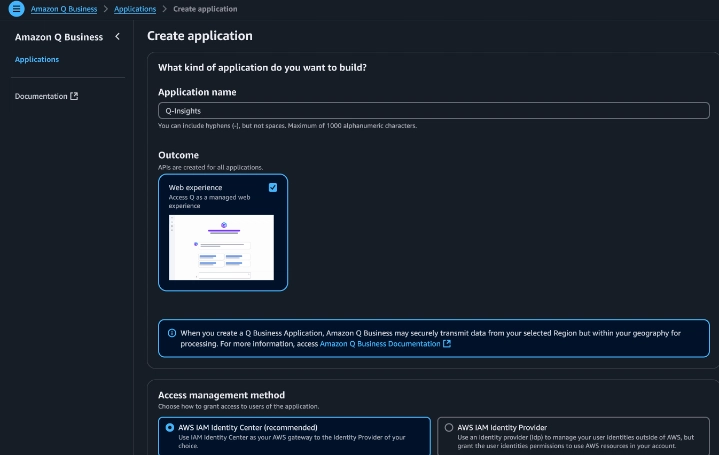Top Reasons Why Java is Still Relevant
In the world of tech, in which new programming languages are developed every year, you could be wondering if Java still worthwhile to learn or using? The short answer is Yes. Java continues to be regarded among the top popular and dependable programming languages within the field of software. Let's look at the 10 compelling reasons Java is still relevant and why it is still a good option for businesses, developers as well as students. 1. Massive Ecosystem and Community Support Java is not just a word, it is an active ecosystem. with millions of coders around the world and a vibrant Open-Source community Java provides a wealth of frameworks, libraries, tools and educational resources. When you are creating enterprise-level apps or Android games There is a good chance Java already offers a solution to your requirements. Need assistance? Need help? Overflow and GitHub have discussion and ideas that could improve your workflow. 2. Platform Independence (Write Once, Run Anywhere) Java's basic philosophy--"Write Once, Run Anywhere"--is still one of its greatest benefits. With Java's Java Virtual Machine (JVM), Java code can run on every device and operating system. This flexibility makes Java ideal for cross-platform development, as well as long-term stability. 3. Solid backing from Big Tech Java will not go away, especially with big corporations like Oracle, IBM, and even Google continue to enhance and support Java. Many enterprise-level applications, like insurance, banking and government infrastructure remain operated by Java. In the event that Fortune 500 companies trust Java for critical systems, it's evident that Java has a long-lasting impact. 4. Continuous Evolution of Modern Features Java isn't outdated. Recent years have seen the introduction of new versions have introduced new features, such as Records, Pattern Matching, Sealed Classes, and Switch Expressions. These have made Java more readable, concise and understandable. The release cycle of six months ensures that Java is always up-to-date with the needs of the industry and developers' expectations. 5. Popularity in Enterprise and Backend Development Java dominates enterprise-level backend development. Frameworks such as Spring Boot and Jakarta EE allow developers to create reliable and secure APIs, microservices and full-stack software. For those exploring career growth or seeking structured learning, a Java Course Online can provide practical skills that are immediately applicable in real-world backend development environments. 6. Android App Development Despite Kotlin increasing to prominence, Java remains a significant language to use for Android development. A lot of older Android applications have been written in Java as well as the Android SDK is still able to support it completely. If you're looking to enter the world of mobile apps Knowing Java can give you an advantage in being able to comprehend and maintain a large amount of current Android code. 7. High Demand in the Job Market Let's talk about careers. Java always ranks among the top five most-in-demand programming languages on the job listings. Companies in fintech, ecommerce logistics, healthcare, and logistics are looking for Java developers with varying experience levels. The process of learning Java isn't only about creating cool applications, it's about opening doors to lucrative career opportunities. 8. Robust Security Features Security is more crucial than ever in today's technological world. Java's built-in security management as well as runtime checks and bytecode verification assist developers create secure applications from scratch. This creates Java particularly attractive to businesses such as defense, finance and healthcare, where security of data is crucial. 9. Strong Educational Foundation Java is frequently taught in bootcamps and universities as a programming language for beginners. Why? because it imparts solid object-oriented programming concepts as well as design patterns and best practices in software engineering. Even if you later switch to another language, Java gives you a strong foundation that's transferable throughout your entire career in technology. 10. Cloud and Big Data Integration Java has successfully adapted to the cloud-native and big data revolution. It is able to seamlessly integrate with platforms such as AWS, Google Cloud, Apache Kafka, Hadoop and Spark. Tools such as Spring Cloud make building cloud-based microservices using Java simpler than ever before. Java's flexibility ensures that it is not only stuck in the past; it is actively creating what the next generation of development software. Final Thoughts With its strong infrastructure, constant updates, enterprise presence and the need for job opportunities, Java continues to be an excellent choice for businesses and developers alike. If you're just starting out

 In the world of tech, in which new programming languages are developed every year, you could be wondering if Java still worthwhile to learn or using? The short answer is Yes. Java continues to be regarded among the top popular and dependable programming languages within the field of software.
In the world of tech, in which new programming languages are developed every year, you could be wondering if Java still worthwhile to learn or using? The short answer is Yes. Java continues to be regarded among the top popular and dependable programming languages within the field of software.
Let's look at the 10 compelling reasons Java is still relevant and why it is still a good option for businesses, developers as well as students.
1. Massive Ecosystem and Community Support
Java is not just a word, it is an active ecosystem. with millions of coders around the world and a vibrant Open-Source community Java provides a wealth of frameworks, libraries, tools and educational resources. When you are creating enterprise-level apps or Android games There is a good chance Java already offers a solution to your requirements.
Need assistance? Need help? Overflow and GitHub have discussion and ideas that could improve your workflow.
2. Platform Independence (Write Once, Run Anywhere)
Java's basic philosophy--"Write Once, Run Anywhere"--is still one of its greatest benefits. With Java's Java Virtual Machine (JVM), Java code can run on every device and operating system. This flexibility makes Java ideal for cross-platform development, as well as long-term stability.
3. Solid backing from Big Tech
Java will not go away, especially with big corporations like Oracle, IBM, and even Google continue to enhance and support Java. Many enterprise-level applications, like insurance, banking and government infrastructure remain operated by Java.
In the event that Fortune 500 companies trust Java for critical systems, it's evident that Java has a long-lasting impact.
4. Continuous Evolution of Modern Features
Java isn't outdated. Recent years have seen the introduction of new versions have introduced new features, such as Records, Pattern Matching, Sealed Classes, and Switch Expressions. These have made Java more readable, concise and understandable.
The release cycle of six months ensures that Java is always up-to-date with the needs of the industry and developers' expectations.
5. Popularity in Enterprise and Backend Development
Java dominates enterprise-level backend development. Frameworks such as Spring Boot and Jakarta EE allow developers to create reliable and secure APIs, microservices and full-stack software.
For those exploring career growth or seeking structured learning, a Java Course Online can provide practical skills that are immediately applicable in real-world backend development environments.
6. Android App Development
Despite Kotlin increasing to prominence, Java remains a significant language to use for Android development. A lot of older Android applications have been written in Java as well as the Android SDK is still able to support it completely.
If you're looking to enter the world of mobile apps Knowing Java can give you an advantage in being able to comprehend and maintain a large amount of current Android code.
7. High Demand in the Job Market
Let's talk about careers. Java always ranks among the top five most-in-demand programming languages on the job listings. Companies in fintech, ecommerce logistics, healthcare, and logistics are looking for Java developers with varying experience levels.
The process of learning Java isn't only about creating cool applications, it's about opening doors to lucrative career opportunities.
8. Robust Security Features
Security is more crucial than ever in today's technological world. Java's built-in security management as well as runtime checks and bytecode verification assist developers create secure applications from scratch.
This creates Java particularly attractive to businesses such as defense, finance and healthcare, where security of data is crucial.
9. Strong Educational Foundation
Java is frequently taught in bootcamps and universities as a programming language for beginners. Why? because it imparts solid object-oriented programming concepts as well as design patterns and best practices in software engineering.
Even if you later switch to another language, Java gives you a strong foundation that's transferable throughout your entire career in technology.
10. Cloud and Big Data Integration
Java has successfully adapted to the cloud-native and big data revolution. It is able to seamlessly integrate with platforms such as AWS, Google Cloud, Apache Kafka, Hadoop and Spark. Tools such as Spring Cloud make building cloud-based microservices using Java simpler than ever before.
Java's flexibility ensures that it is not only stuck in the past; it is actively creating what the next generation of development software.
Final Thoughts
With its strong infrastructure, constant updates, enterprise presence and the need for job opportunities, Java continues to be an excellent choice for businesses and developers alike. If you're just starting out or an experienced developer, putting your money into Java will pay dividends for a long time to be.
So, dust off the Java textbook or open IntelliJ. Java isn't just alive, it's flourishing.



































































![Apple Watch Series 10 Back On Sale for $299! [Lowest Price Ever]](https://www.iclarified.com/images/news/96657/96657/96657-640.jpg)
![Apple Slips to Fifth in China's Smartphone Market with 9% Decline [Report]](https://www.iclarified.com/images/news/97065/97065/97065-640.jpg)
![EU Postpones Apple App Store Fines Amid Tariff Negotiations [Report]](https://www.iclarified.com/images/news/97068/97068/97068-640.jpg)








































































































_Andreas_Prott_Alamy.jpg?width=1280&auto=webp&quality=80&disable=upscale#)






















































































![[The AI Show Episode 144]: ChatGPT’s New Memory, Shopify CEO’s Leaked “AI First” Memo, Google Cloud Next Releases, o3 and o4-mini Coming Soon & Llama 4’s Rocky Launch](https://www.marketingaiinstitute.com/hubfs/ep%20144%20cover.png)







































































































































![How to Work With HAR Files: A Step-by-Step Guide [With Examples]](https://media2.dev.to/dynamic/image/width=800%2Cheight=%2Cfit=scale-down%2Cgravity=auto%2Cformat=auto/https%3A%2F%2Fdev-to-uploads.s3.amazonaws.com%2Fuploads%2Farticles%2F5wovh8gozs51ofbg0nks.png)
































































































